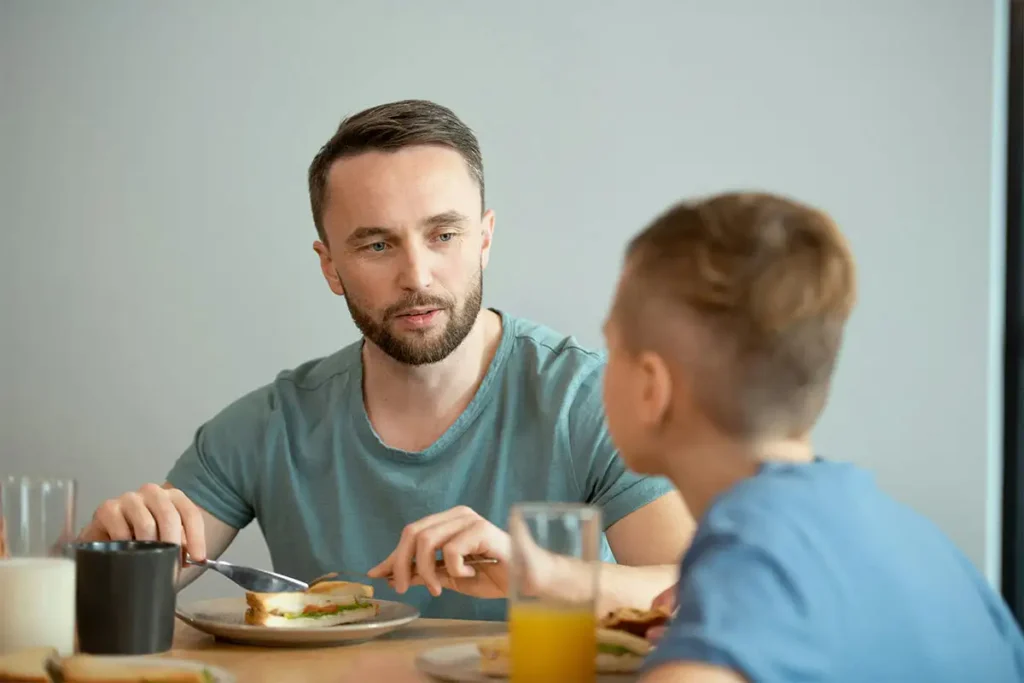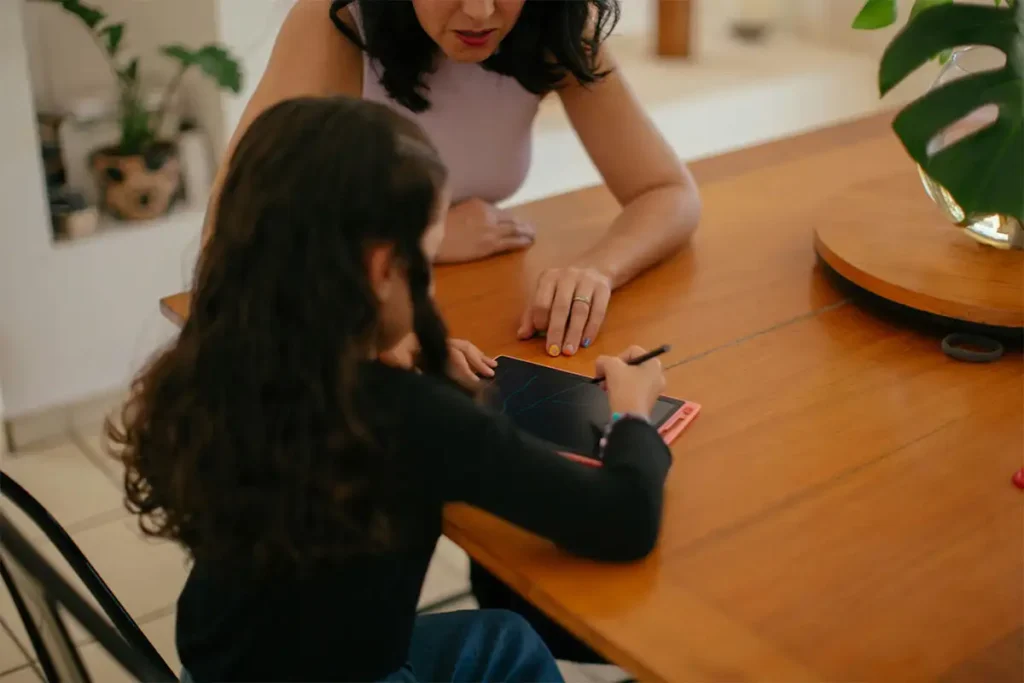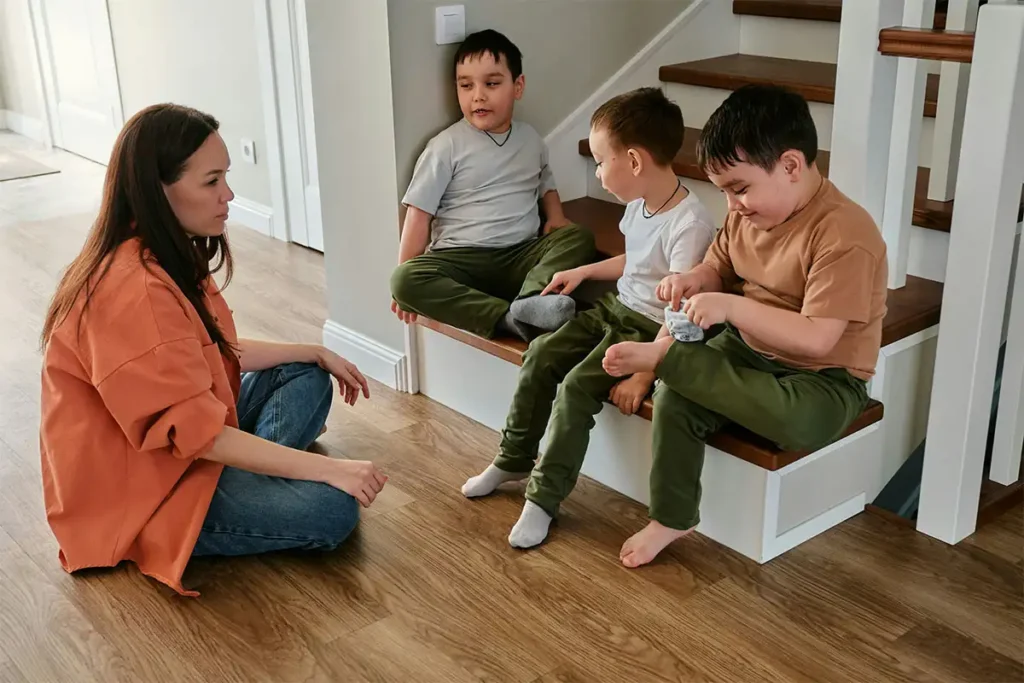
Making the decision to go to rehab is one of the most courageous and life-changing choices you can make—not just for yourself, but for your entire family. If you’re a parent, one of the most difficult parts of this journey might be figuring out how to talk to your children about your decision. You may be struggling with feelings of guilt, fear, or uncertainty, but know this: choosing recovery is a powerful act of love and commitment to your family’s future.
At 10 Acre Ranch, we understand how important family is. That’s why we’ve created this guide to help you have a thoughtful, compassionate, and age-appropriate conversation with your children about going to rehab.
Why It’s Important to Tell Your Kids
You may be tempted to shield your children from the truth or downplay your absence. But honesty is often the best approach. Children, regardless of their age, are remarkably perceptive. If you’re struggling with substance use, chances are they’ve already noticed something isn’t quite right. By speaking openly and truthfully, you’re modeling honesty, resilience, and responsibility—traits that will stick with them for years to come.
Here are a few reasons it’s important to have this conversation:
- Builds Trust: Being honest with your kids strengthens their trust in you.
- Reduces Anxiety: Children often worry more when they don’t understand what’s happening.
- Encourages Emotional Expression: Talking about rehab encourages kids to share their feelings.
- Sets a Positive Example: Taking responsibility for your health shows your children that it’s okay to ask for help.
Preparing for the Conversation
Before sitting down with your children, it’s important to prepare both mentally and emotionally. Here are some steps to help you get ready:
1. Understand Your Own Emotions
Going to rehab may bring up feelings of shame, guilt, or fear. Acknowledge those emotions and give yourself grace. You’re taking a huge step toward healing—and that’s something to be proud of.
2. Talk to a Professional
A counselor, therapist, or treatment advisor can help you plan the conversation and suggest age-appropriate language for your children. At 10 Acre Ranch, we’re here to support you before, during, and after your stay.
3. Choose the Right Time and Place
Find a calm, quiet setting where you won’t be interrupted. Make sure you have enough time to talk and answer questions without feeling rushed.
What to Say (and How to Say It)
Your approach will vary depending on the age and maturity of your children. Whether your kids are toddlers, school-aged, or teenagers, the most important elements are honesty, love, and reassurance.
Talking to Young Children (Ages 3–7)
Younger children don’t need a lot of details, but they do need to know they’ll be safe and cared for.
What to say:
“Mommy/Daddy has been feeling very sick, and I need to go to a special place to get better. I’ll be away for a little while, but you’ll be with people who love you and will take great care of you. I love you very much, and I’m doing this so I can be the best mommy/daddy I can be.”

Key points:
- Keep it simple and direct.
- Use reassuring words.
- Let them know it’s not their fault.
Talking to School-Aged Children (Ages 8–12)
Children in this age range can understand more complex ideas but still need emotional support and reassurance.
What to say:
“I’ve been struggling with a problem called addiction. It means I’ve been using alcohol/drugs in a way that’s not healthy. It’s not your fault, and I want to get better, so I’m going to a treatment center called 10 Acre Ranch. I’ll be away for a little while, but I’ll stay in touch and come back healthier and happier.”
Key points:
- Be honest but age-appropriate.
- Reassure them that they are safe and loved.
- Encourage questions and allow them to express feelings.
Talking to Teenagers (Ages 13+)
Teens may already suspect something is wrong or know more than they’ve let on. They may also have their own feelings about your behavior or the impact it’s had on the family.
What to say:
“I want to talk to you about something serious. I’ve been dealing with addiction, and it’s affected not just me but everyone around me—including you. I’ve made the decision to get help by going to rehab. It’s called 10 Acre Ranch, and I’ll be gone for a little while so I can work on getting better. I know this might bring up a lot of emotions, and I want to hear how you’re feeling too.”
Key points:
- Acknowledge the impact your addiction may have had.
- Encourage an open, honest conversation.
- Give space for anger, sadness, or questions.
Get Your Questions Answered
Our expert & caring staff on site are available 24/7. Call us today.

Answering Common Questions
Your children may ask a lot of questions—or none at all. Either way, be ready to respond calmly and with compassion. Here are a few common questions and how you might answer them:
“Is it my fault?”
Answer: “Absolutely not. Addiction is a disease, and nothing you did caused this. I’m getting help because I love you and want to be better for all of us.”
“Where will you be?”
Answer: “I’ll be at a place called 10 Acre Ranch. It’s a treatment center that helps people like me who are struggling with addiction. It’s a safe and caring place.”
“How long will you be gone?”
Answer: “I’ll be gone for a few weeks (or however long your program is), but I’ll stay in touch and can’t wait to come home to you.”
“Will you get better?”
Answer: “That’s what I’m working on. Recovery is a process, but I’m committed to getting better and living a healthier life—for myself and for you.”
Helping Kids Cope While You’re in Rehab
Being separated from a parent is never easy, but there are steps you can take to make it a little easier for your children.
1. Create a Plan for Care
Make sure your kids will be with someone they know and trust—whether that’s a spouse, grandparent, or close friend. Let your children know who will be taking care of them and that they’ll be safe.
2. Stay Connected
If your treatment program allows it, arrange regular phone calls, video chats, or letters. Let your kids know when they’ll hear from you so they have something to look forward to.
3. Keep Routines Consistent
Children thrive on structure. Work with their caregiver to keep routines—like bedtimes, school drop-offs, or family meals—as normal as possible.
4. Provide Emotional Support
Encourage the caregiver to check in regularly with your children about how they’re feeling. Therapy or counseling can also be incredibly helpful for kids processing a parent’s absence or addiction.
Rebuilding Trust After Rehab
Once your treatment is complete, your journey doesn’t end—it evolves. Rebuilding trust and healing relationships with your children takes time, but it’s absolutely possible.
1. Be Patient
Your kids may need time to adjust. Be patient with their feelings, even if they’re angry or withdrawn at first.
2. Follow Through
Make small promises—and keep them. Whether it’s picking them up from school or having a family movie night, showing up consistently goes a long way.
3. Continue the Conversation
Keep the lines of communication open. Let your kids ask questions, and be honest about your progress, including challenges and successes.
4. Involve Them in Family Therapy
Many treatment centers, including 10 Acre Ranch, offer family counseling as part of the recovery process. Participating in therapy together can help you all heal and grow stronger.
You’re Not Alone—And Neither Are They
As hard as this conversation may be, it’s also an opportunity. It’s a chance to show your children what true strength looks like. It’s a moment to redefine your legacy as a parent—not by your past struggles, but by your commitment to change.
At 10 Acre Ranch, we believe in healing not just the individual, but the entire family. Our compassionate team of professionals is here to support you every step of the way, from detox and treatment to aftercare and family reintegration.
You’re making a brave, powerful choice by getting help—and your children will one day see it for what it is: an act of profound love.
Ready to take the first step?
Reach out to 10 Acre Ranch today. We’re here to help you start a new chapter—for yourself, and for the ones you love most.






